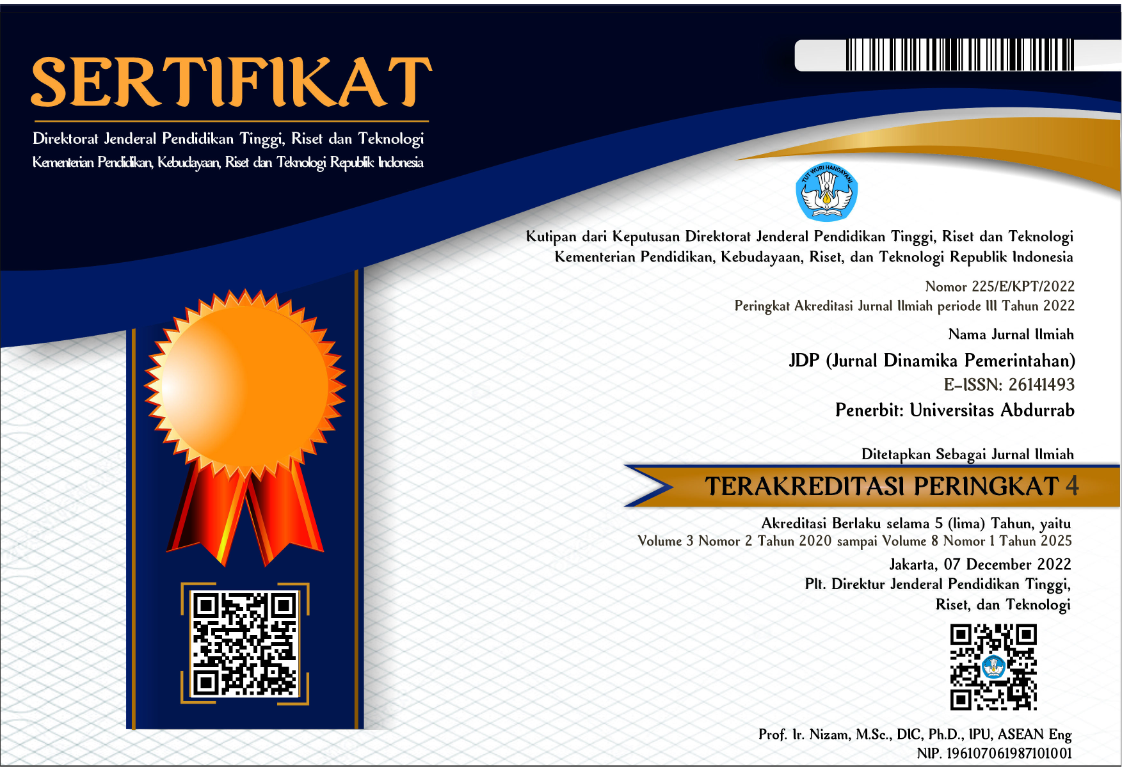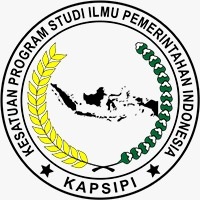MEMPERTANYAKAN EKSISTENSI INFRASTRUKTUR POLITIK (PARPOL) DALAM KEBIJAKAN KENAIKAN HARGA BBM 2022
Abstract
On September 3, 2022, the price of subsidized fuel (pertalite and diesel) increased. This was determined through a Presidential Regulation on the grounds of the fluctuations in world crude oil prices, plus data showing that the distribution of subsidized fuel which was previously enjoyed by 70 percent was enjoyed by the wealthy, so it was deemed not right on target. This triggered various reactions from the people who were directly affected by the increase in fuel prices. The increase of fuel prices has the potential to increase the unemployment rate which will certainly increase the level of poverty in Indonesia. Because of that, a big question is the extent to which the existence of political parties as a medium for representing the people's voice to express the people's counter attitude to the increase in fuel prices.
The method used in this study is a qualitative research method. This research will produce descriptive data in the form of writing. Qualitative descriptive research is research that tries to describe a phenomenon that occurs in the field. Furthermore, the research technique used in this paper is literature study, namely by researching and understanding books, documents or other written sources that are relevant to the study being raised.
The results of this study indicate that the function of political parties as a function of political communication has not run optimally. This is evidenced by the majority of the existing political parties not fully voicing the public's contra stance on the increase of fuel prices. Indeed, with this political communication function, all political parties are willing and able to voice the attitudes of the public. This is a manifestation of the people's representation projected by the existence of political parties that are pro to the people.
Keywords: Political Parties, Functions of Political Parties, Political Communication.
References
Ahmad Faiz, “Survei: Partai Politik Tak Dipercaya Publik,” Koran Tempo, 23 Maret
Antonio Pradjasto, “Partai Politik tak Hanya Kemampuan Memerintah,” Jurnal
Jentera, no. 16, (Juni 2007).
Firman Noor, Quo Vadis Demokrasi Kita? Sebuah Respon Terhadap Konsolidasi
Demokrasi Indonesia (Jakarta: RMBooks, 2015).
Ichlasul Amal, ed., Teori-teori Partai Politik (Edisi Revisi), (Yogyakarta: Tiara
Wacana Yogya, 1996).
Lihat, M. Nazir, Metode Penelitian (Jakarta: Ghalia Indonesia, 2003); dan pelajari
juga, Suharsimi Arikunto, Prosedur Penelitian Suatu Pendekatan Praktek
(Edisi Revisi), (Jakarta: Rineka Cipta, 2002).
Miriam Budiardjo, Dasar-dasar Ilmu Politik, (Jakarta: Gramedia, 2008).
Rully Chairul Azwar, “Partai Politik Di Tengah Ancaman “Virus” Oligarki dan
Politik Kartel,” Jurnal Ketatanegaraan, no. 5 (November 2017).
Sebastian Salang, Potret Partai Politik di Indonesia: Assemen terhadap Kelembagaan, Kiprah, dan Sistem Kepartaian (Jakarta: Freiedrich Naumann Stiftung, 2007), v
Skala Survei Indonesia, “Hasil Nasional tentang Kinerja Partai Politik dan
Anggota Legislatif”, Oktober 2012.
Syamsuddin Haris, Partai, Pemilu, dan Parlemen Era Reformasi (Jakarta: Yayasan
Pustaka Obor Indonesia, 2014).

This work is licensed under a Creative Commons Attribution-NonCommercial-ShareAlike 4.0 International License.
1. Copyright of all journal manuscripts is held by the JDP (Jurnal Dinamika Pemerintahan)
2. Formal legal provisions to access digital articles of electronic journal are subject to the provision of the Creative Commons Attribution-ShareAlike license (CC BY-NC-SA), which means that JDP (Jurnal Dinamika Pemerintahan) is rightful to keep, transfer media/format, manage in the form of databases, maintain, and publish articles.
3. Published manuscripts both printed and electronic are open access for educational, research, and library purposes. Additionally, the editorial board is not responsible for any violations of copyright law.
licensed under a Creative Commons Attribution-ShareAlike 4.0 International License.
 PDF (Bahasa Indonesia)
PDF (Bahasa Indonesia)
 Abstract views: 207
Abstract views: 207
 downloads: 194
downloads: 194

 :
:









